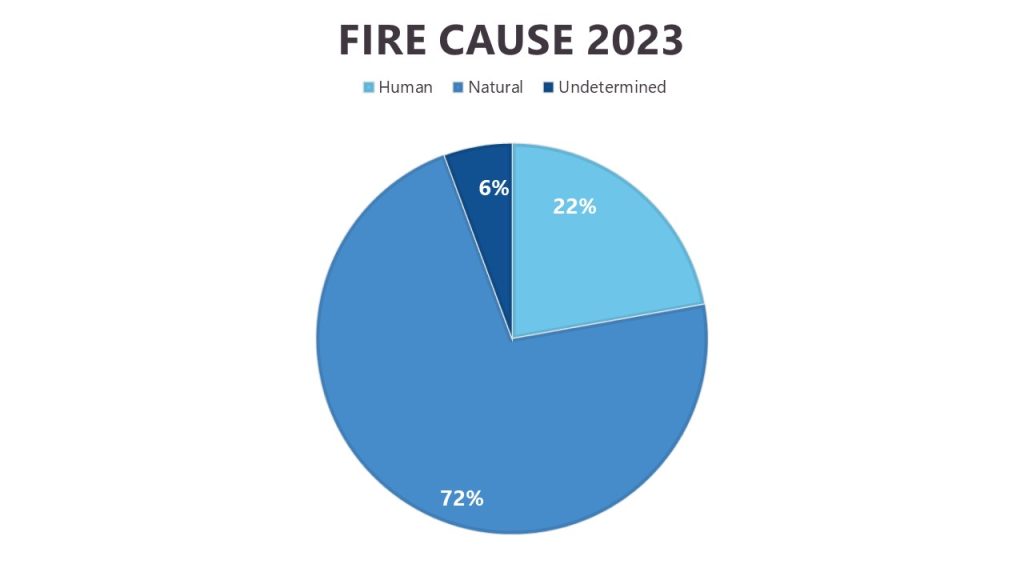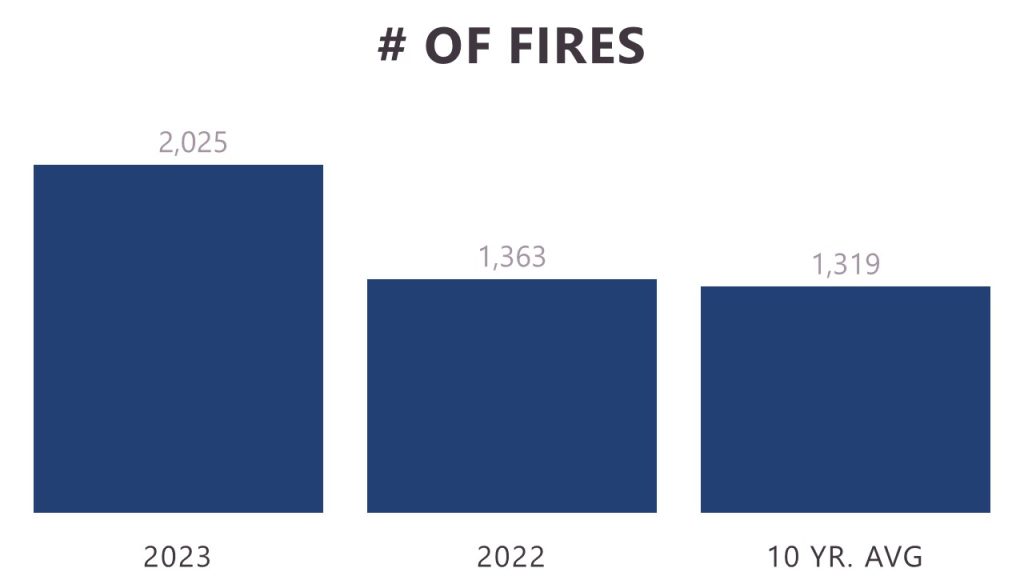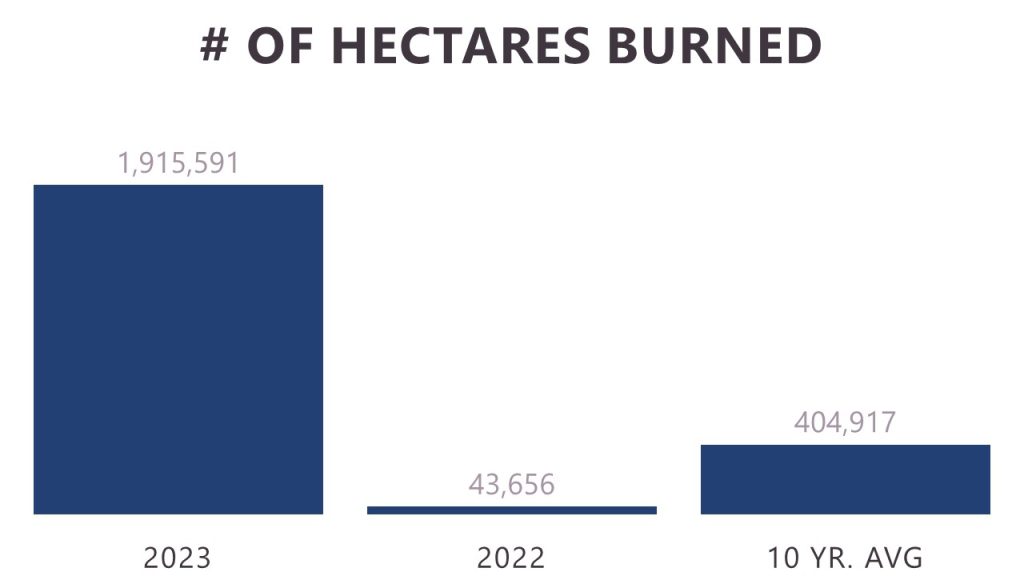There are currently 62 active wildfires in the province. Of these 62 active incidents, 91% are under control or being held. Only five active incidents remain out of control. While all six regional fire centres are experiencing wildfire activity, the majority of active fires, and all current wildfires of note, are in the Prince George Fire Centre.
Alberta is current experiencing catastrophic wildfire activity. A 16-person BC Wildfire Service Incident Management Team has been deployed to Alberta to assist with response efforts. Structure protection crews, a structure protection specialist and structure protection units have also been deployed.
In addition to wildfire response in B.C. and Alberta, the BC Wildfire Service is also supporting flood response in the southern interior and Grand Forks area.
Wildfires of Note
- Red Creek (G80223)
- Boundary Lake (G80220)
- Teare Creek (G30210)



Fire bans and restrictions
| Fire Centre | Campfires | Category 2 Open Burning | Category 3 Open Burning | Forest Use and Area Restrictions |
|---|---|---|---|---|
| Cariboo Fire Centre |  |  |  | N/A |
| Coastal Fire Centre |  |  |  | N/A |
| Kamloops Fire Centre |  |  |  |  |
| Northwest Fire Centre |  |  |  | N/A |
| Prince George Fire Centre |  |  |  | N/A |
| Southeast Fire Centre |  |  |  | N/A |
Fire bans and prohibitions
B.C. is a large and geographically diverse province. For that reason, decisions on when and where to implement fire prohibitions are made by B.C.’s six regional fire centres. In deciding to implement a prohibition, they consider:
- level of fire activity
- fire danger ratings
- current and forecasted fire weather indices
- long-range weather forecasts
- short term (3-day to 5-day) weather forecasts
- the possibility of lightning in geographically specific areas
- risk of human-caused fires
- fuel types
- fuel volatility
The process for determining fire risk is complex and may differ from one part of the province to another, depending on local conditions.
Additionally, multiple factors are taken into consideration when assessing wildfire hazards and deciding whether to implement an open fire prohibition, including current and forecasted weather conditions; the availability of firefighting resources; and the Buildup Index (BUI).
The BUI rating is an estimate of the total amount of fuel available for combustion on the landscape. It considers the fuel’s moisture content since that can affect fire intensity. Campfire prohibitions are implemented based on the region’s BUI values. (Previously, campfire bans were date-driven or based on Fire Danger Ratings, depending on the fire centre.)
A campfire ban will be enacted when over 50% of the weather stations within a defined geographic area surpass the BUI threshold established for that area. BUI thresholds vary throughout the province. The threshold for a particular area is based in part on the area’s assigned “fuel type”, which indicates how volatile those fuels are, how intensely and deeply they will burn, and how difficult it might be to suppress a fire in that fuel type. A campfire ban will usually be rescinded once the BUI reaches a value that is 20% lower than the threshold value that triggered the ban’s implementation. The Buildup Index allows the province’s six fire centres to follow a consistent and scientific process for evaluating the need for campfire prohibitions.
In order to have a safe and successful burn:
- ensure an open burn is never left unattended
- use tools like windy.com (this includes local wind speeds and direction, and provides more detail than high-level weather forecasts – there is also a layer for windy.com data available in our mobile app)
- check the venting index
The next Provincial Wildfire Status Update will be provided on May 11, 2023.
